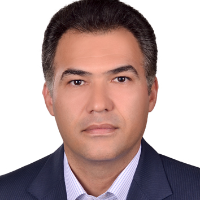Evaluating the Conceptual Model of Audit Report Credibility: A Structural Equation Modeling Approach
This research evaluates the conceptual model of the credibility of audit reports using a structural equation modeling approach. The aim is to identify and analyze the variables influencing the credibility of these reports and to examine the relationships among them. This study is applied in terms of its purpose and descriptive/survey in terms of its nature and method. The statistical population of this research includes users of audit reports, such as professional and non-professional investors, with a sample size of 514 individuals determined using a structural equation modeling sample size calculator. The time frame for this research is the first half of the year (2024). Data were collected using a questionnaire based on the findings of a qualitative study by Kiani Deh Kiani et al. (2024). This study employed partial least squares (PLS) structural equation modeling and utilized Smart PLS software. The results indicate that the credibility of audit reports is influenced by effective oversight, environmental conditions, individual characteristics, and audit quality. All research hypotheses were confirmed based on significance criteria, and the findings emphasize the importance of the interaction among these variables in enhancing the credibility of audit reports. This research contributes to clarifying the relationships among the variables affecting the credibility of audit reports and provides valuable insights for stakeholders in this area, including auditors and regulatory bodies, to improve auditing processes and the credibility of financial reports.
-
Presenting the hegemonic model of auditors' social ethics conflict control: Grounded theory approach
Ahad Samadi Farrokhran, Asgar Pakmaram*, Rasoul Abdi,
Journal of Audit Science, -
Validation of the silence failure model of internal auditors in Iranian companies with the structural equation modeling approach
Asgar Esmailluo, , Asgar Pakmaram*, Nader Rezaie
Journal of Audit Science,


